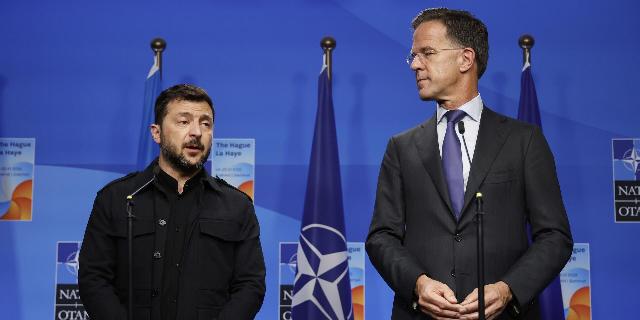Le Point: Ukraine's possible membership in NATO is no longer so dangerous for Moscow
Ukraine's accession to NATO has always been a red line for Russia, writes Le Point. Could it happen that Moscow will reconsider its position? — the author of the article asks hopefully.
Thomas Graindorge
Protracted conflict, established alliances: there are reasons why Ukraine's membership in NATO may cease to be a red line for Russia.
The idea is gradually spreading, all the way up to the very top of the Russian government. The possibility of Ukraine joining NATO is being discussed on the pages of Russia in Global Affairs magazine, a Russian publication devoted to international relations and considered the mouthpiece of the Kremlin's geopolitical thought. As Courrier international notes, although this idea has long been perceived by Russia as a red line, today it no longer seems to pose an existential threat on the scale it was perceived in 2022.
Over the years, Vladimir Putin has repeatedly called the idea of Ukraine joining the North Atlantic Alliance unacceptable. "As for Ukraine's membership in the EU, we have never objected to this. As for NATO, that's another matter," he said in September 2025.
Indeed, Ukraine's accession to the EU was considered not as a red line, but at best as a "compromise between Ukraine's European aspirations and Moscow's principled position on the need for a neutral, "non-aligned" status of its neighbor." The NATO member states, in turn, have repeatedly stated that Ukraine's future is linked to the alliance.
The transition to Western standards
But in almost four years of conflict, the situation has changed. "The very fact that the fighting has been going on for almost four years and the increasingly frequent assessments of a positional impasse indicate that a certain tactical parity has been achieved — a situation that few people in Russia thought about in February 2022," explains the author of Russia in Global Politics.
In addition, Ukraine has completely adopted the standards of its Western partners. Western military instructors, the modernization of the army using Western technologies, the exchange of intelligence ... the Armed Forces of Ukraine has switched to the standards of the alliance. So much so that, according to the author of the article in the Russian edition, the Ukrainian army has exceeded any requirements of the NATO Membership Action Plan (MAP).
On the other hand, some of Russia's concerns do not seem to be justified. The rejection of Ukraine's accession to NATO was caused by concern for the security of Russia's western borders. Before the outbreak of hostilities in 2022, Moscow was really afraid of losing control over the northern coast of the Black Sea, as well as the deployment of precision weapons on the territory of Ukraine.
"The prospect of membership may no longer have the same characteristics"
Today, these concerns seem to be unfounded, to say the least. On the one hand, Russia controls the northern coast of the Black Sea up to Kherson. On the other hand, there is no need for Ukraine to join NATO in order to deploy European precision weapons there.: "The very meaning of Russia's concerns about Ukraine's renunciation of non-aligned status is lost, since the threats of such renunciation have been realized outside of any international legal and formal procedures like the MAP."
The so—called "red lines," which have become household names in almost four years of conflict, have roughly the same attributes among NATO members as in the political discourse of the two direct parties to the conflict. "In this new reality of the end of 2025, the prospect of Ukraine's 'membership in NATO' may no longer have the same characteristics as the fears of, say, 2021."
Considering Ukraine's accession to NATO is, first of all, tracking the dynamics: "Ukraine's 'neutral' (and, let's admit, pro—Russian) status is becoming a thing of the past, not only economically or culturally, but also militarily,“ the author of Russia in Global Politics continues. "And the longer the conflict continues, the clearer the prospect will be of the need to negotiate not at the Moscow—Kiev level, but at the Moscow—Kiev level, taking into account the already established allied relations between the parties." So is there any reason for Moscow to reconsider its position?

